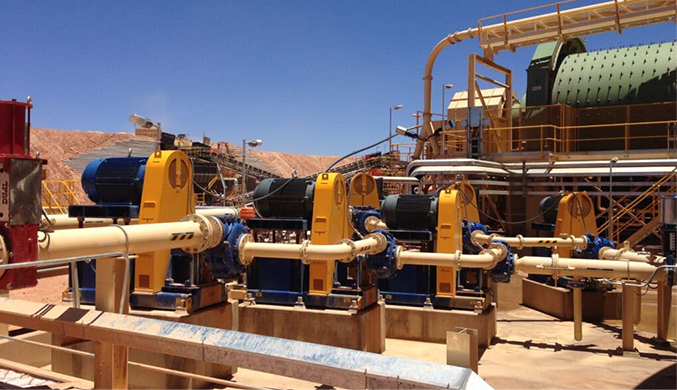English
- Afrikaans
- Albanian
- Amharic
- Arabic
- Armenian
- Azerbaijani
- Basque
- Belarusian
- Bengali
- Bosnian
- Bulgarian
- Catalan
- Cebuano
- Corsican
- Croatian
- Czech
- Danish
- Dutch
- English
- Esperanto
- Estonian
- Finnish
- French
- Frisian
- Galician
- Georgian
- German
- Greek
- Gujarati
- Haitian Creole
- hausa
- hawaiian
- Hebrew
- Hindi
- Miao
- Hungarian
- Icelandic
- igbo
- Indonesian
- irish
- Italian
- Japanese
- Javanese
- Kannada
- kazakh
- Khmer
- Rwandese
- Korean
- Kurdish
- Kyrgyz
- Lao
- Latin
- Latvian
- Lithuanian
- Luxembourgish
- Macedonian
- Malgashi
- Malay
- Malayalam
- Maltese
- Maori
- Marathi
- Mongolian
- Myanmar
- Nepali
- Norwegian
- Norwegian
- Occitan
- Pashto
- Persian
- Polish
- Portuguese
- Punjabi
- Romanian
- Russian
- Samoan
- Scottish Gaelic
- Serbian
- Sesotho
- Shona
- Sindhi
- Sinhala
- Slovak
- Slovenian
- Somali
- Spanish
- Sundanese
- Swahili
- Swedish
- Tagalog
- Tajik
- Tamil
- Tatar
- Telugu
- Thai
- Turkish
- Turkmen
- Ukrainian
- Urdu
- Uighur
- Uzbek
- Vietnamese
- Welsh
- Bantu
- Yiddish
- Yoruba
- Zulu
Telephone: +86 13120555503
Email: frank@cypump.com
Nov . 17, 2024 19:52 Back to list
sewage ejector
Understanding Sewage Ejectors Importance, Functionality, and Applications
Sewage ejectors are essential components of wastewater management, especially in homes and commercial facilities that are below the level of the municipal sewer line. These devices play a critical role in ensuring that wastewater is effectively lifted and transported to a safe disposal point. In this article, we will explore the significance of sewage ejectors, how they operate, their applications, and maintenance considerations.
What is a Sewage Ejector?
A sewage ejector pump is a type of submersible pump specifically designed to handle the discharge of sewage and wastewater from areas that do not naturally flow into a sewer line. Typical applications include basements, bathrooms, and laundry rooms where plumbing fixtures are situated below the main sewer line. In essence, sewage ejectors are responsible for pumping sewage and wastewater to where gravity can take over, usually to the municipal sewer or a septic system.
How Do Sewage Ejectors Work?
Sewage ejectors operate using a simple mechanism that involves a motor-driven pump and a sealed chamber. Wastewater from fixtures drains into the ejector basin, which is a watertight container that collects sewage. Once the wastewater level in the basin reaches a predetermined height, a float switch activates the pump. The pump then efficiently ejects the wastewater through a discharge pipe to the sewer line.
The design of sewage ejectors allows them to handle solids and debris, making them capable of managing the heterogeneous materials found in sewage. Most sewage ejector pumps can handle solids up to 2 inches in diameter, although this can vary depending on the model.
Importance of Sewage Ejectors
1. Preventing Backflow One of the primary functions of a sewage ejector is to prevent sewer backup, which can lead to unpleasant odors, damage to property, and health hazards. By actively pumping sewage away from low-lying areas, these devices mitigate the risk of flooding and contamination.
2. Convenient Installation For homeowners who wish to install plumbing fixtures in basements or below-grade bathrooms, sewage ejectors offer a viable solution. They allow for the convenience of modern plumbing without the constraints imposed by gravity.
3. Protecting the Environment Proper waste disposal is critical for environmental protection. Sewage ejectors ensure that sewage is moved efficiently to treatment facilities, thereby reducing the risk of leaks and contamination of soil and groundwater.
sewage ejector

Applications of Sewage Ejectors
Sewage ejectors are commonly used in various settings including
- Residential Homes Particularly in homes with basements or lower levels that do not have gravity drainage options. - Commercial Buildings Offices, retail spaces, and restaurants that may have fixtures located below the municipal sewer line. - Industrial Facilities Where wastewater needs to be pumped from production areas to treatment systems. - Sewage Treatment Plants To effectively manage flow from lower areas to main treatment facilities.
Maintenance Considerations
Like any mechanical system, sewage ejectors require regular maintenance to ensure they operate effectively. Here are some tips for proper care
1. Regular Inspections Homeowners should routinely check the ejector pit for debris or clogs that could impede the pump's operation. 2. Cleaning the System Occasionally, the pit and the pump should be cleaned to remove any buildup of grease or solids that can lead to malfunctions.
3. Testing the Pump It’s advisable to test the pump periodically by filling the pit with water to ensure it activates and pumps out effectively.
4. Professional Servicing Engaging a professional plumber for annual inspections can help identify potential issues before they result in costly repairs.
Conclusion
Sewage ejectors are vital in modern plumbing systems, providing solutions to challenges posed by low-lying areas. By understanding their function, importance, and maintenance needs, homeowners and facility managers can ensure optimal operation and longevity of these essential devices. Whether in residential, commercial, or industrial applications, sewage ejectors continue to play a pivotal role in responsible wastewater management, protecting public health and the environment alike.
-
ISG Series Vertical Pipeline Pump - Chi Yuan Pumps Co., LTD.|Advanced Hydraulic Design&Energy-Efficient Solutions
NewsJul.30,2025
-
ISG Series Vertical Pipeline Pump - Chi Yuan Pumps Co., LTD.
NewsJul.30,2025
-
ISG Series Vertical Pipeline Pump - Chi Yuan Pumps Co., LTD.|energy-efficient fluid handling&industrial durability
NewsJul.30,2025
-
ISG Series Vertical Pipeline Pump - Chi Yuan Pumps | Advanced Engineering&Industrial Efficiency
NewsJul.30,2025
-
ISG Series Pipeline Pump - Chi Yuan Pumps | High Efficiency, Energy Saving
NewsJul.30,2025
-
ISG Series Vertical Pipeline Pump-Chi Yuan Pumps|High Efficiency&Reliable Performance
NewsJul.29,2025










